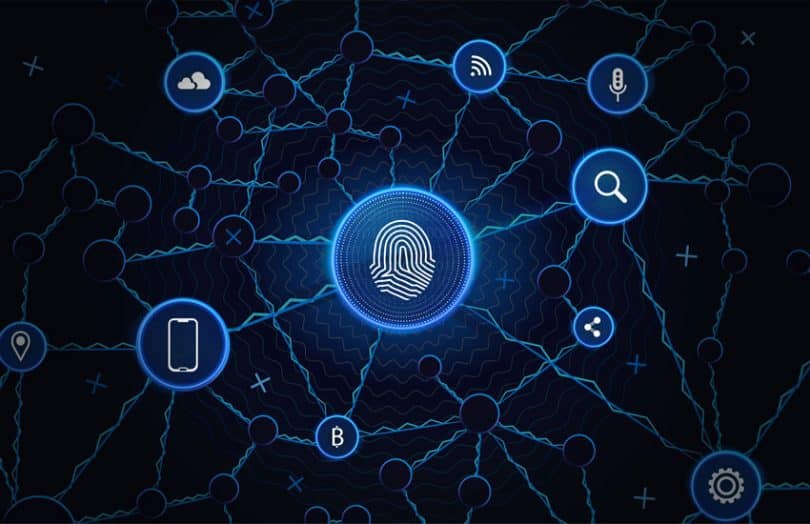
In today’s digital age, Software-as-a-Service (SaaS) has become an integral part of modern business operations. However, one of the major challenges faced by SaaS providers is ensuring the security and privacy of user data. Blockchain identity verification combines the security of blockchain technology with the reliability of identity verification to create a robust system for authenticating user identities.
Eric Ly, co-founder of LinkedIn, notes:
Blockchain technology has the potential to revolutionize the way we verify identities online. By combining the security of blockchain with the reliability of identity verification, we can create a more secure and privacy-focused system for authenticating user identities.
In a blockchain identity verification system, user identities are stored on a decentralized ledger, which is accessible only to authorized parties. The identity verification process involves registration, verification, and authorization. Users create their digital identities by providing their personal information, such as name, address, and phone number, and verifying their identity using government-issued IDs. The system then verifies the user’s identity by cross-checking the provided information with government databases and conducting biometric verification using facial recognition or fingerprint scanning. Once the user’s identity is verified, they are granted access to the SaaS platform.
Daniel Jeffries, author and blockchain expert, highlights that:
Blockchain identity verification can help businesses reduce the risk of fraud and comply with regulations such as KYC and AML. It also provides a more streamlined and efficient onboarding process for users, improving the user experience.
Blockchain identity verification provides numerous benefits for SaaS providers.
- Firstly, it offers improved security as it provides a more secure and tamper-proof system for storing and authenticating user identities. The decentralized nature of blockchain technology makes it virtually impossible for hackers to compromise the system.
- Secondly, it enhances privacy by ensuring that user data is stored on a decentralized ledger that is accessible only to authorized parties and encrypted to prevent unauthorized access.
- Thirdly, it reduces the risk of fraud by ensuring that only authorized users are granted access to the platform. This can help prevent fraudulent activities such as identity theft and phishing scams. Fourthly, it streamlines the user onboarding process for SaaS providers as users can create their digital identities and verify their identity within minutes, reducing the time and resources required for manual verification.
- Lastly, it helps SaaS providers comply with regulations such as Know Your Customer (KYC) and Anti-Money Laundering (AML), which require businesses to verify the identity of their customers to prevent money laundering and other illegal activities.
Dr. Robert Pearl, the former CEO of the Permanente Medical Group, highlights the benefits of blockchain identity verification in the healthcare industry. He notes that:
The use of blockchain identity verification in the healthcare industry can improve patient privacy and security while providing a more efficient way to share medical data between providers.
Healthcare providers can use blockchain identity verification to securely store and share patient data. Patients can create their digital identities and grant access to their medical records to authorized healthcare providers.
Blockchain identity verification has numerous use cases across various industries:
- Online Banking: Blockchain identity verification can be used by online banks to verify the identity of their customers and prevent fraud. This can help banks comply with regulations such as KYC and AML.
- E-commerce: E-commerce platforms can use blockchain identity verification to prevent fraudulent activities such as identity theft and payment fraud. Users can create their digital identities and verify their identity to ensure that only authorized users are granted access to the platform.
- Healthcare: Healthcare providers can use blockchain identity verification to securely store and share patient data. Patients can create their digital identities and grant access to their medical records to authorized healthcare providers.
In conclusion, blockchain identity verification offers a host of benefits for SaaS providers, including improved security, privacy, and efficiency. By using a decentralized ledger to store and authenticate user identities, SaaS providers can reduce the risk of fraud, comply with regulations, and enhance the user experience. With the growing importance of digital identities and the increasing threat of cybercrime, blockchain identity verification is quickly becoming an essential tool for modern business operations.
However, as with any new technology, there are still some challenges and limitations to overcome. For example, blockchain identity verification requires significant computing power, which may limit its adoption in certain industries. Additionally, the complex nature of blockchain technology may make it difficult for some users to understand and use.
Despite these challenges, the potential benefits of blockchain identity verification are clear. As more businesses recognize the value of secure and efficient identity verification, we can expect to see wider adoption of this technology in the coming years. The question remains: how will blockchain identity verification continue to transform the way we authenticate identities and interact with digital platforms? Only time will tell, but it’s clear that blockchain technology has the potential to revolutionize the way we approach this issue in the digital age.